
"You live on - in the hearts of everyone you have touched and nurtured while you were here."
The love of learning, the sequestered nooks, And all the sweet serenity of books. ~ H W Longfellow


All that has happened during the last 55 years may filter through the measly civics syllabus, popular cinema and television; history as formally constituted knowledge of the past does not cover it.But even this overestimates how much recent history Indian children manage to encounter. Images of the past through civics, popular cinema and television? Bah. My civics textbooks were BORING and they had NO context: every aspect of Indian democracy seemed to have emerged in a vacuum. Hindi films may be a treasure trove for sociologists interested in examining the structures of Indian society but someone hoping to glean a narrative of India's 55 democratic years will have to have superhuman cognitive powers if they rely only on our movies alone.
If, for Indian children, history comes to an end with independence and partition, this is because Indian adults have mandated it that way.There is definitely some truth here. I once asked my father why we only had the first 4 volumes (covering the events until 1940) of Y. D. Phadke's Veesavya Shatakatil Maharashtra (Maharashtra in the 20th century: Phadke planned to write 8 volumes, each covering a decade until 1980, and finished 6 before he died this year.) My Dad replied that he didn't really need books for the decades after 1940 since he'd actually lived through it!
In the academy, the discipline of history deals with the past, while the disciplines of political science and sociology deal with the present. This is a conventional and in many ways logical division. The difficulty is that in the Indian academy the past is defined as a single, immovable date: 15 August 1947. Thus when the clock struck midnight and India became independent, history ended, and political science and sociology began.To remedy this, Guha has dug through the "present": through newspaper and magazine archives, through academic and popular books on sociology and anthropology (and of course, his own experience) and crafted a narrative that takes us through India's post-independence years -- all in a cool 800 pages. As as summary of the recent past, I think it's pretty good.
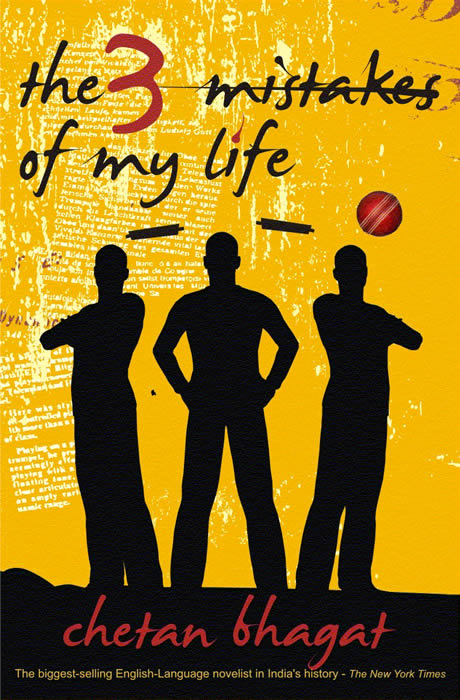 India has seen quite a few English writers in the past, from R. K. Narayan known for his simple, yet lively writing to Shashi Tharoor whose breadth and variety has captured people's imagination. Though I wouldn't place Chetan Bhagat in the same league, he has managed to capture a pretty big audience, the youth of India, between 15 and 30 years of age, by targeting his writing to their needs and basing his works on their lifestyle. After a hugely popular "Five Point Someone" and a popular "One Night at the call center", Chetan Bhagat presents his 3rd book, "The 3 mistakes of my life". Having read "One night at the call center", I wasn't very impressed with his writing style nor his "God speak" theme in the book. But I must give credit to his simple writing style, use of appropriate lingo and realistic description of details. I chanced upon this book, it has been a while since I read a book, so I thought this 250-pager story could be breezed through and would also provide me the required warm-up to bootstrap my reading habit again.
India has seen quite a few English writers in the past, from R. K. Narayan known for his simple, yet lively writing to Shashi Tharoor whose breadth and variety has captured people's imagination. Though I wouldn't place Chetan Bhagat in the same league, he has managed to capture a pretty big audience, the youth of India, between 15 and 30 years of age, by targeting his writing to their needs and basing his works on their lifestyle. After a hugely popular "Five Point Someone" and a popular "One Night at the call center", Chetan Bhagat presents his 3rd book, "The 3 mistakes of my life". Having read "One night at the call center", I wasn't very impressed with his writing style nor his "God speak" theme in the book. But I must give credit to his simple writing style, use of appropriate lingo and realistic description of details. I chanced upon this book, it has been a while since I read a book, so I thought this 250-pager story could be breezed through and would also provide me the required warm-up to bootstrap my reading habit again.
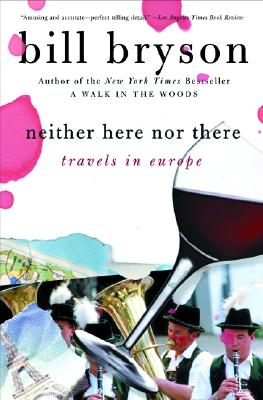 Close friends know I have been bitten by the travel bug ever since I read Eat, Pray, Love. I have been doing the "I need to go to Italy" chant for the past few months. Bill Bryson's 'Neither here nor there' managed to add just about 30 other places to the chant.
Close friends know I have been bitten by the travel bug ever since I read Eat, Pray, Love. I have been doing the "I need to go to Italy" chant for the past few months. Bill Bryson's 'Neither here nor there' managed to add just about 30 other places to the chant.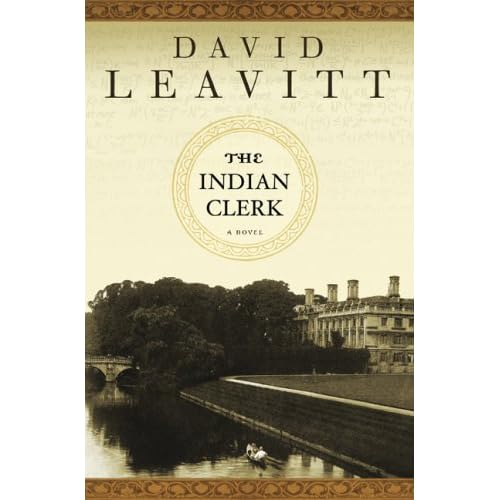 The best historical novels -- Gone with the Wind, for example -- make you live history. Immersed in characters, some fictitious, some real, the reader re-imagines the past, filtered through the author's vivid imagination. I was therefore intrigued to hear that David Leavitt was going to write a historical novel about the celebrated relationship between the mathematicians G. H. Hardy and Srinivasa Ramanujan. His new book, The Indian Clerk is not quite a historical novel; at least it is not a good historical novel. It is perhaps accurately described as novelized history. It gives a good account of the four years that Ramanujan spent at Cambridge with Hardy -- an account far more entertaining and fun, than say, a scholarly biography of Ramanujan would be. It is a tepid novel, but a good read.
The best historical novels -- Gone with the Wind, for example -- make you live history. Immersed in characters, some fictitious, some real, the reader re-imagines the past, filtered through the author's vivid imagination. I was therefore intrigued to hear that David Leavitt was going to write a historical novel about the celebrated relationship between the mathematicians G. H. Hardy and Srinivasa Ramanujan. His new book, The Indian Clerk is not quite a historical novel; at least it is not a good historical novel. It is perhaps accurately described as novelized history. It gives a good account of the four years that Ramanujan spent at Cambridge with Hardy -- an account far more entertaining and fun, than say, a scholarly biography of Ramanujan would be. It is a tepid novel, but a good read.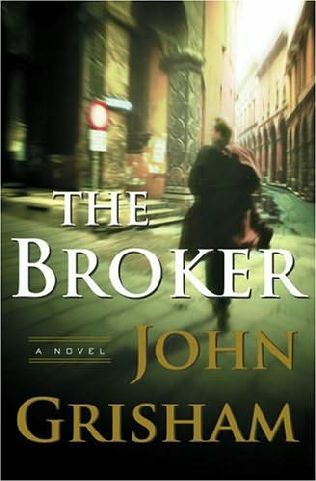 Although this is a fairly old book of Grisham's, I got around to reading it only now. The broker is the story of a cunning Washington lawyer and lobbyist, who amasses money and power by hook and crook. One of his crooked deals gets him between a rock and a hard place. With multiple foreign secret services after his life, he cuts a deal, pleads guilty and gets into federal prison.
Although this is a fairly old book of Grisham's, I got around to reading it only now. The broker is the story of a cunning Washington lawyer and lobbyist, who amasses money and power by hook and crook. One of his crooked deals gets him between a rock and a hard place. With multiple foreign secret services after his life, he cuts a deal, pleads guilty and gets into federal prison. Scott Rosenberg's "Dreaming in Code", despite its rather evocative title, is the mundane story of an ongoing software project called "Chandler", a tool for Personal Information Management (PIM). Wait, that's not right. It is a vividly written but altogether-familiar story of software development. A story of requirements ("specs") and disagreements, of delays and deadlines, of plans, of changes in plans and of more changes in plans, of ideals and of pragmatism, and of course, of bugs that make you tear your hair out in agony. The sort of things that are all too familiar, when it comes to coding.
Scott Rosenberg's "Dreaming in Code", despite its rather evocative title, is the mundane story of an ongoing software project called "Chandler", a tool for Personal Information Management (PIM). Wait, that's not right. It is a vividly written but altogether-familiar story of software development. A story of requirements ("specs") and disagreements, of delays and deadlines, of plans, of changes in plans and of more changes in plans, of ideals and of pragmatism, and of course, of bugs that make you tear your hair out in agony. The sort of things that are all too familiar, when it comes to coding.Chandler offered a look at the technical, cultural and psychological dimension of making software, liberated from the exigencies of the business world. [pg 54]
"Nobody should start to undertake a large project, " Torvalds snapped. "You start with a small trivial project, and you should never expect it to get large. If you do, you'll just overdesign and generally think it is more important than it likely is at that stage. Or, worse, you might be scared away by the sheer size of the work you envision. So start small and think about the details. Don't think about some big picture and fancy design. If it doesn't solve some fairly immediate need, it's almost certainly overdesigned."Words from the wise, indeed.
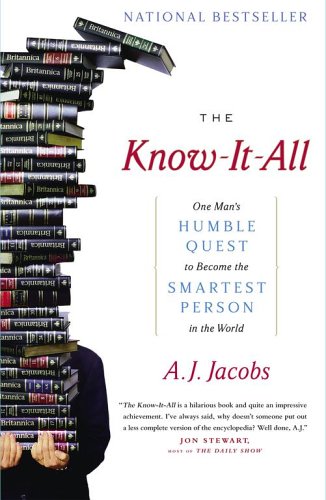
 There is only one way that I like a book or movie to end - with a 'feel good' effect on me. For this reason, I had long dismissed Kite Runner from my hope-to-read-some-day list, despite its long held best seller status. I had heard it was a very emotionally heavy story and I imagined reading the book would be lugging myself through pages of anguish, concluding with a grand melancholic finale. Now that I have read it, I know I was not entirely wrong in my assumptions, but I am more than gratified about not having missed reading it.
There is only one way that I like a book or movie to end - with a 'feel good' effect on me. For this reason, I had long dismissed Kite Runner from my hope-to-read-some-day list, despite its long held best seller status. I had heard it was a very emotionally heavy story and I imagined reading the book would be lugging myself through pages of anguish, concluding with a grand melancholic finale. Now that I have read it, I know I was not entirely wrong in my assumptions, but I am more than gratified about not having missed reading it. [This review contains some spoilers but rest assured they will not, in any way, affect your reading of "On Chesil Beach"]
[This review contains some spoilers but rest assured they will not, in any way, affect your reading of "On Chesil Beach"]They were young, educated, and both virgins on this, their wedding night, and they lived in a time when a conversation about sexual difficulties was plainly impossible. But it is never easy.
"On Chesil Beach" is the story of that wedding night and of its heart-breaking consequences. Edward and Florence are the quintessential couple. He, 23, is a working-class boy, who has just majored in history and has a fine career ahead of him. Florence, 22, is a promising musician, a gifted violinist. They met, fell in love, and got married. Their courtship, McEwan tells us:
... had been a pavane, a stately unfolding, bound by protocols never agreed upon or voiced but generally observed. Nothing was ever discussed—nor did they feel the lack of intimate talk. These were matters beyond words, beyond definition. The language and practice of therapy, the currency of feelings diligently shared, mutually analyzed, were not yet in general circulation. While one heard of wealthier people going in for psychoanalysis, it was not customary
to regard oneself in everyday terms as an enigma, as an exercise in narrative history, or as a problem waiting to be solved.
... not with the hot, moist passion she had read about but warmly, deeply, sometimes like a daughter, sometimes almost maternally. She loved cuddling him, and having his enormous arm around her shoulders, and being kissed by him, though she disliked his tongue in her mouth and had wordlessly made this clear. She thought that he was original, unlike anyone she had ever met. He always had a paperback book, usually history, in his jacket pocket in case he found himself in a queue or a waiting room. He marked what he read with a pencil stub. He was virtually the only man Florence had met who did not smoke. None of his socks matched. He had only one tie, narrow, knitted, dark blue, which he wore nearly all the time with a white shirt. She adored his curious mind, his mild country accent, the huge strength of his hands, the unpredictable swerves and drifts of his conversation, his kindness to her, and the way his soft brown eyes, resting on her when she spoke, made her feel enveloped in a friendly cloud of love. At the age of twenty-two, she had no doubt that she wanted to spend the rest of her life with Edward Mayhew. How could she have dared risk losing him?
 I am not a book lover nor do I read a lot of books. This is my first stumbling step at getting a review out.
I am not a book lover nor do I read a lot of books. This is my first stumbling step at getting a review out.